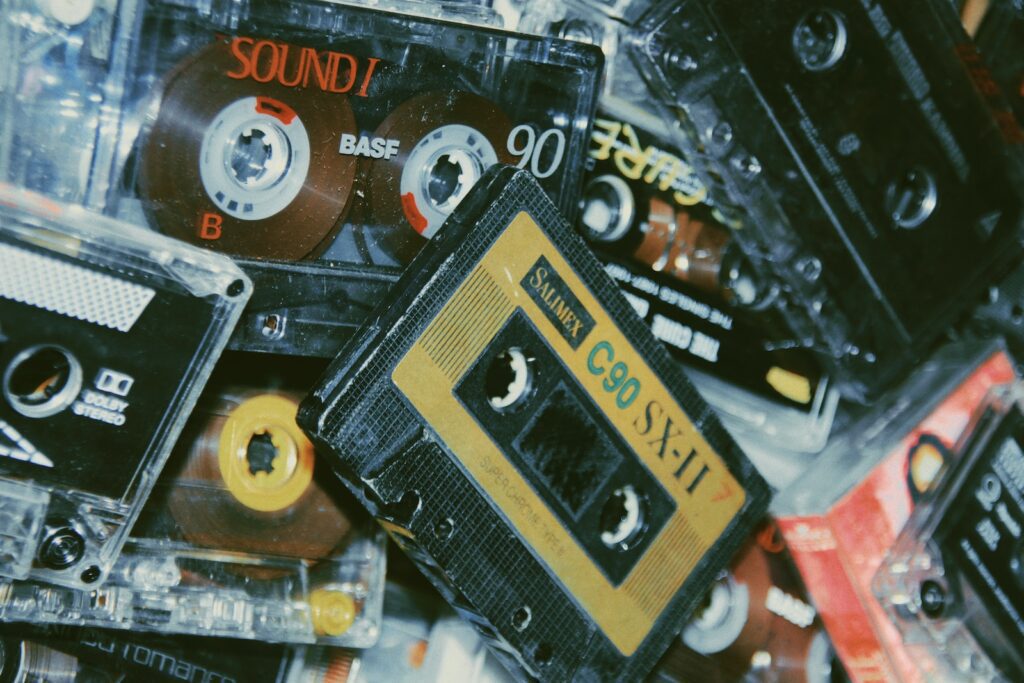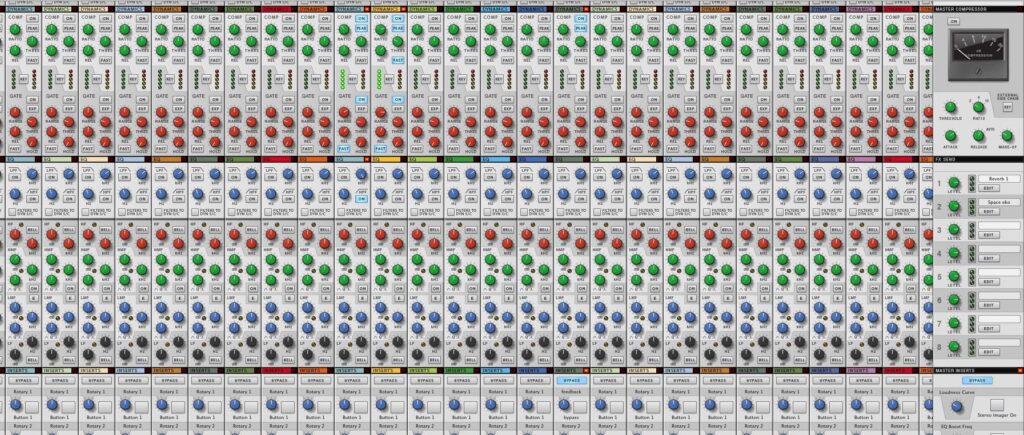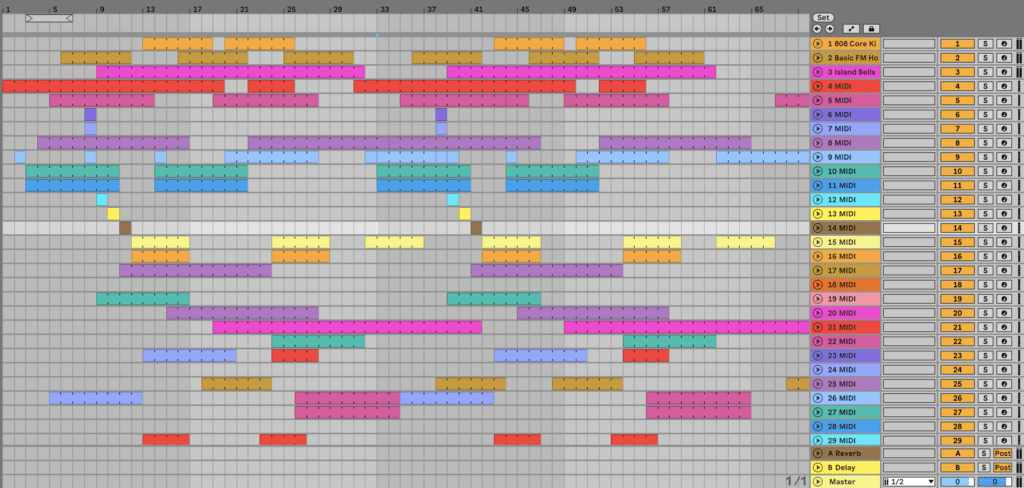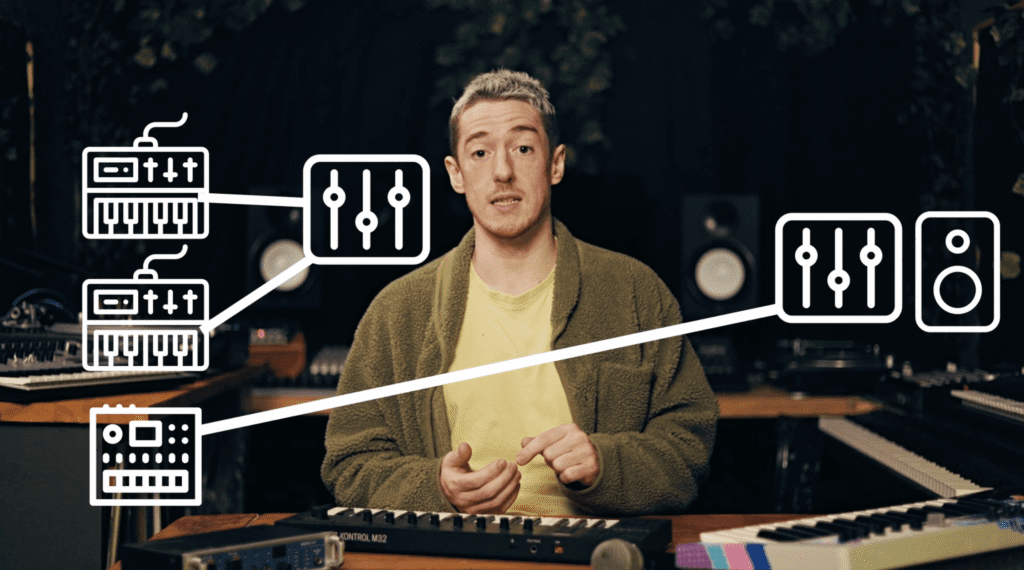We’ve looked at five mistakes already, now let’s look at five more! These are really common mistakes that slow us down and sap our inspiration…
Not sharing music
Sharing music is an amazing feeling. When I first started making music I’d hook up my cassette recorder to the family PC that I’d loaded all manner of software (and viruses, probably) into and record and record, eager to show and share with my friends. It was all pretty terrible, I’m sure, but two things happened.

One, I was in love. It was so exciting — there was a point to doing it all and all the energy I put in paid dividend after dividend, the feeling of sharing, of showing myself and my passion providing orders of magnitude more return than the act of making the music. I’d gone from talking to myself to speaking out loud.
Two, people enjoyed it. Maybe not even the music, not that much anyway — but the passion, the doing it. It’s infectious and inspiring to be around people that are showing their passion, and it makes us feel we can do it too. THAT’s what music is about. There are a million and one ways to do it, but it’s about energy flow, about channelling our passions and our unique voices.
Over the years, whether it was running down to hip hop clubs to hand out hastily burned CD mixtapes recorded with emcees in a run-down student bedroom or sharing music on internet message boards, it’s always been the sharing of music that’s kept my passion alive.
It’s when I’ve been sharing less that I’ve found less joy in making music, and a “what’s even the point?” mentality starts to prevail. That spills into other aspects of life too — it’s not just the sharing music, it’s sharing YOU.
Release your music.
Over mixing
It’s really easy to get caught up in trying to get things ‘just right’ when mixing. The truth is, whilst at one end of the scale there are objectively poor choices, at the other there’s just subjective preference.
Fundamentally mixing is about balance, and when you get to a point where things are generally sitting in their own lane, exactly how you achieve a satisfying balance could go in just about any direction… pick ONE!

We’ve all done it, work our way through a mix until we reach a certain point where we tweak a synth that then leads us to go back to a previous sound and tweak that, and then that affects how the snare cuts through so we fiddle with that, then we go back to that synth again and just give it a little bit more TLC, then… ping ponging between individual tracks in a mix is a never ending errand, and a race against time as our ears adjust and fatigue over the course of a session.
Sometimes the best thing to do is give yourself a time limit to finish a mix, stop, and export. Listen the next day — if it sounds good, then great. If you hate it, start again from scratch and do the same thing again. Now you’ve got two versions to compare. Is one actually better than the other? What works and what doesn’t? Starting from scratch gives you a chance to develop your actual ear and avoid starting from shaky ground, and as you develop, you’ll start making time efficient choices. It shouldn’t take forever to mix a song, and the confidence to know when we’re working to the best of our abilities helps us improve! One thing’s for sure — knowing what all of the knobs are doing to your sound before you even turn them will speed things up a LOT. Essential Music Production will give you the foundation you need to make better choices with your music production!
Too many layers of instruments
It’s very common to see beginners with dozens of tracks in a DAW. More means better, right? It’s more complicated, so that must mean we know what we’re doing… except, of course, that’s generally not the case.

Aside from making it harder on your computer to actually play the project, over-producing a track with pages of stacked synths and samples makes it harder to arrange, harder to mix, and honestly very rarely actually adds any value to the listener.
If you don’t stop adding things until your computer grinds to a halt, there’s a good chance you’re over-producing your music. Not every song has to fit on a four track recorder, but countless classics have… so being honest with yourself, are you satisfying your musical vision or are you persuading yourself you’re working hard? Great music is about knowing what to leave out as much as what to put in.
And if you do have a timeline the height of the empire state building and there’s no way around it, do yourself a favour and batch up and group your tracks when mixing. Nobody can keep up with hundreds of channels on a mixer!
Getting too absorbed in technique
Trying to get music out of our heads and into our gear can be a frustrating experience without being conscious of some technique, music theory, and instrument playing essentials, but filling our heads with learning just for the sake of learning isn’t the answer.

I can absolutely guarantee that with all the hats we wear in music production, especially home studio music production where we’re the composers, players, recorders, mixers, and mastering engineers — not to mention promoters and distributors — there’s never going to be a point where there’s nothing left to learn so there’s no point trying. Don’t get me wrong — lifelong learning is amazing and it’s the way we progress… when it’s combined with practice. We might as well pick the things we love the most about music production and focus most of our attention on those, whether it’s synth programming, sampling techniques, mixing or whatever else. If you really do love it all, then the most urgent for solving today’s problem is the best place to start. There’s no point in getting super nerdy in bass sound design if the limiting factor in your finished tracks is how interesting your arrangement is. There’s no point in reading and watching hundreds of hours of deep music theory discussions if you’re not at a point where you’re confident with the basics.
Always be learning, but always in service of actually DOING!
Not playing your imagination
One day this clicked for me big time, and over the years I’ve found that in myriad ways of trying to describe it, it’s one of the most common issues that music producers, music makers, or whatever else you want to call us, experience.

I used to — and sometimes still do — have an urge to go and make some music. A really great, inspired feeling like I could really do something cool. Then, when I sit down with my gear and start pressing pads and keys… all of the inspired feelings and giddy optimism stop with a pop, like a burst lightbulb. Into its place comes anxiety, self-doubt, shame, and just a generally dejected feeling.
I realised the problem: instead of sitting down, listening to myself, and considering what it was I was excited about, what was buried in my head that I needed to get out, I was just… pressing keys and pads. Somehow, somewhere between going over to my gear and starting to interact with it, I’d gone completely into autopilot. And just pressing keys and pads aimlessly isn’t inspiring — especially without the theory and playing skills to back it up at even a basic level.
There’s a way around this, though! When I sit with my gear, before I even turn it on, I actually visualise what I want to get done. I really listen to myself. What’s deep inside me that set me off? A drum pattern with a particular skip and swing? A chord progression? Sometimes I’ll even write down the outline of an entire song — relaxed liquid drum and bass at 160bpm, a minor key with beautiful ninth chords and electric piano licks over an evolving synth pad, field recordings of a forest in the soundbed, two drops with a variation on a huge, warm, sub bass on each… now I can hear it in my head. Every sound. Every moment. And now I can begin.
Essential Music Production will give you all the accelerated learning you need to get confident with making better music faster. If you enjoyed this and missed the first five, take a look at Five Mistakes Most Producers Make (and how to avoid them!)


